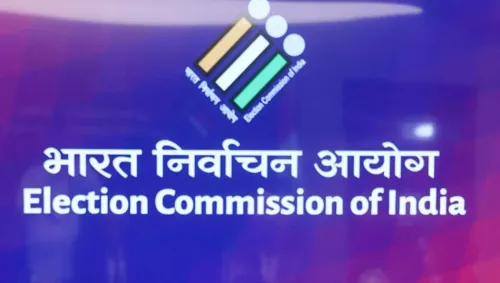Did the Himachal Cabinet Approve Recruitment of 1,386 Water Guards?

Synopsis
Key Takeaways
- Recruitment of 1,386 Jal Rakshaks approved
- Focus on disaster preparedness with safety audits
- Integration of emergency services proposed
- Procurement prices set for fruits to aid farmers
- Development of a zoological park initiated
Shimla, July 29 (NationPress) The Himachal Pradesh Cabinet, led by Chief Minister Sukhvinder Sukhu, convened for the second consecutive day on Tuesday and made a significant decision to recruit 1,386 Jal Rakshaks or water guards, who have served for 12 years or more as of December 31, 2024, as pump attendants within the Jal Shakti Vibhag.
In addition, the Cabinet has approved the procurement of apples at Rs 12 per kg under the market intervention scheme (MIS) for 2025. The procurement also includes B and C grade kinnow, malta, and orange at Rs 12 per kg, galgal at Rs 10 per kg, as well as seedling, grafted, and kacha achari mango at Rs 12 per kg under the same scheme. Furthermore, it validated the recommendations presented by the Cabinet Sub-Committee on Disaster Management and Rehabilitation.
The sub-committee, chaired by Revenue Minister Jagat Singh Negi, was formed to evaluate and propose strategies for enhancing the state’s disaster preparedness and rehabilitation frameworks.
Among the recommendations made is the necessity to perform structural safety audits of buildings statewide to gauge disaster resilience. Based on the findings of these audits, retrofitting measures will be implemented to minimize the risk of structural damage during disasters.
Recognizing the critical need for disaster-resilient infrastructure, the committee further advised that earthquake-resistant and hazard-resilient construction should be mandatory throughout the state.
To improve the efficiency of disaster response, the Sub-Committee has proposed integrating Home Guards, Civil Defence, fire services, and the State Disaster Response Force (SDRF) with the Himachal Pradesh State Disaster Management Authorities' (HPSDMA) Disaster Management Cell, aimed at ensuring a coordinated and rapid response during emergencies.
Additionally, the Cabinet approved the translocation of 325 trees as part of Phase I in the development of the Durgesh-Aranya Zoological Park located at Bankhandi in Kangra district.
The decision was also made to establish a new regional transport office (RTO) in Dehra, Kangra district, along with the creation and filling of essential posts for its smooth operation.
Moreover, the Cabinet approved the upgrade and equipping of 18 day care centres for chemotherapy at district hospitals and selected Adarsh Swasthya Sansthan's across the state.
This initiative aims to provide accessible follow-up treatment for cancer patients within their districts, thereby reducing the need for travel to medical colleges or out of state, ultimately saving both time and costs for patients and their families.










